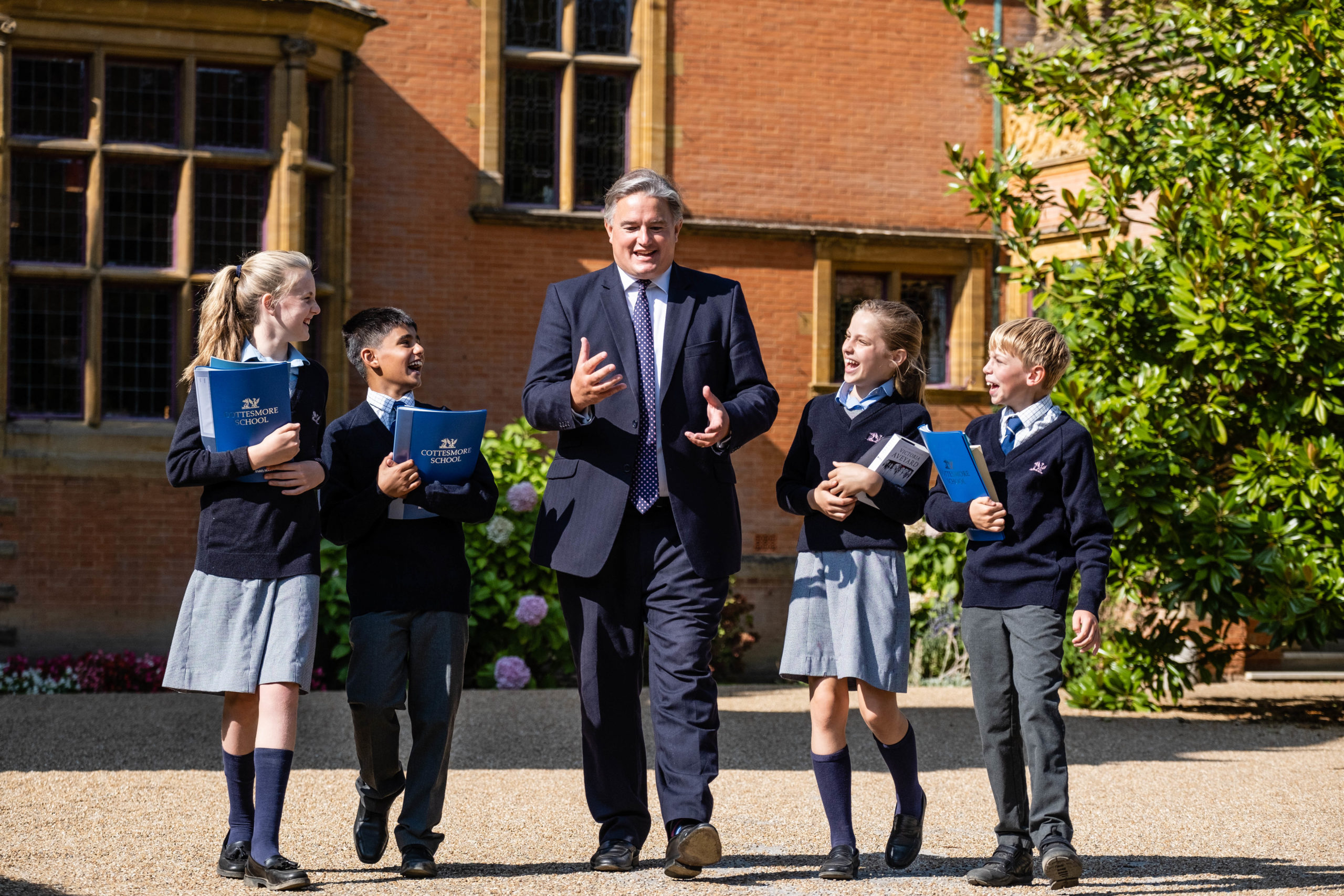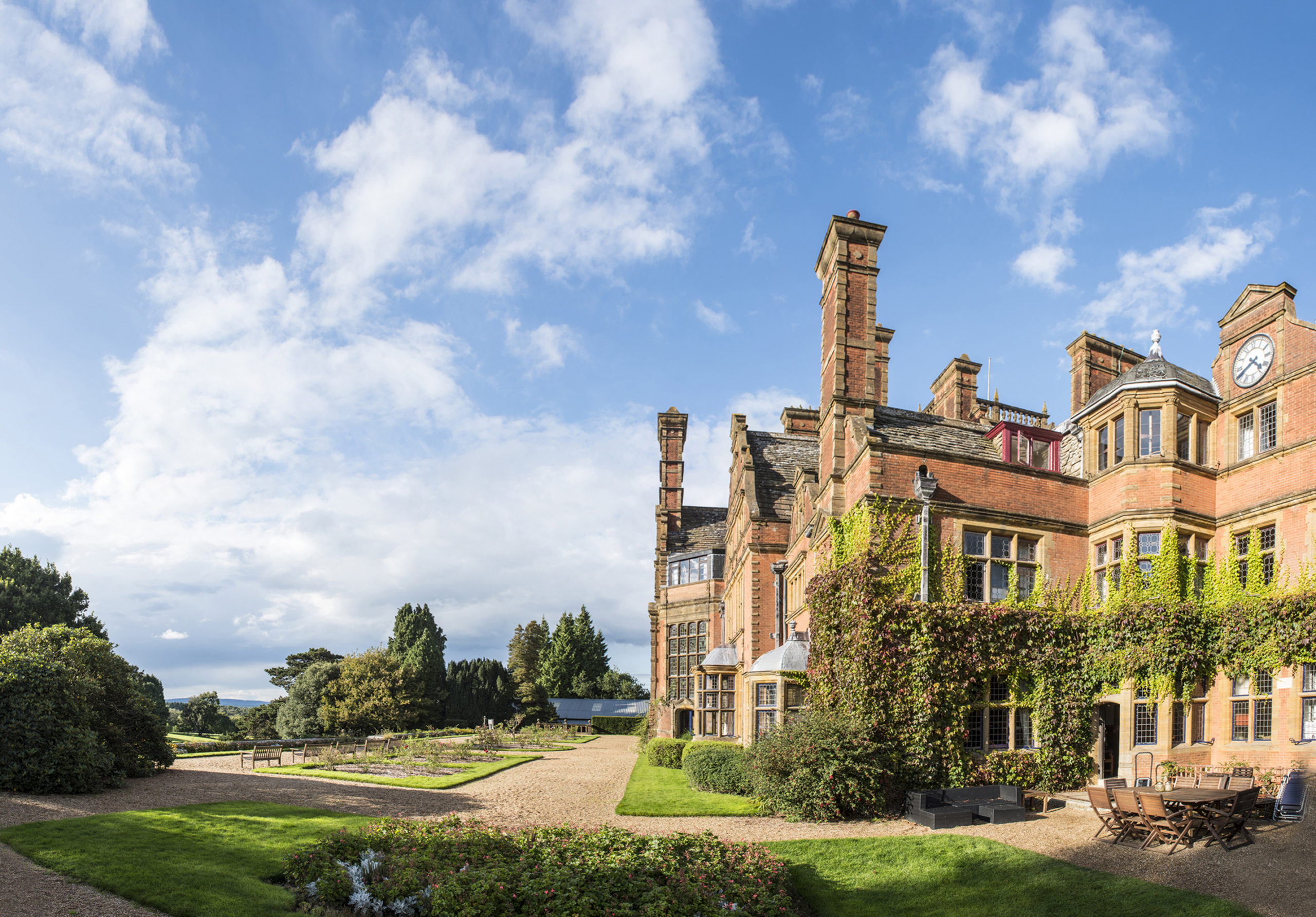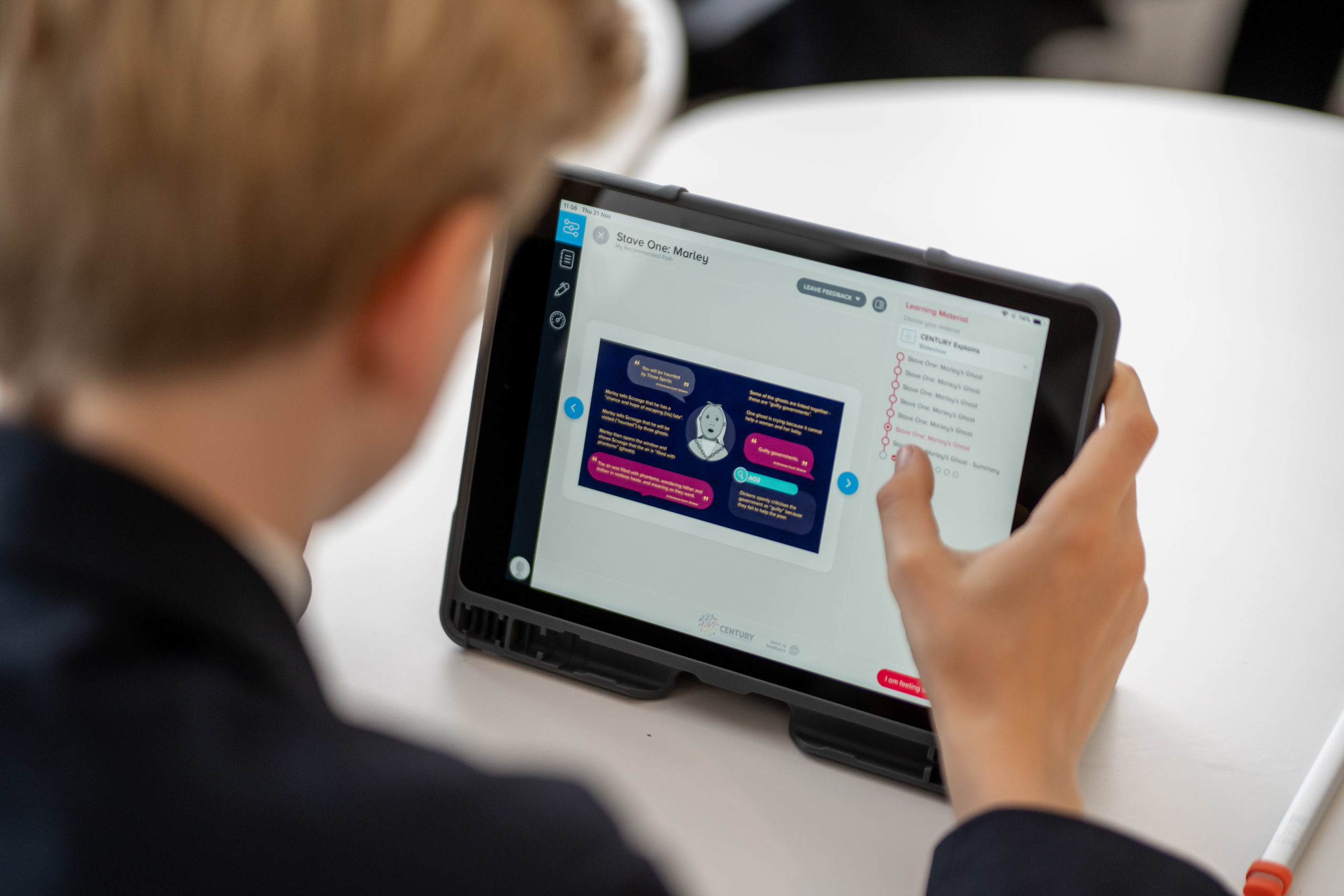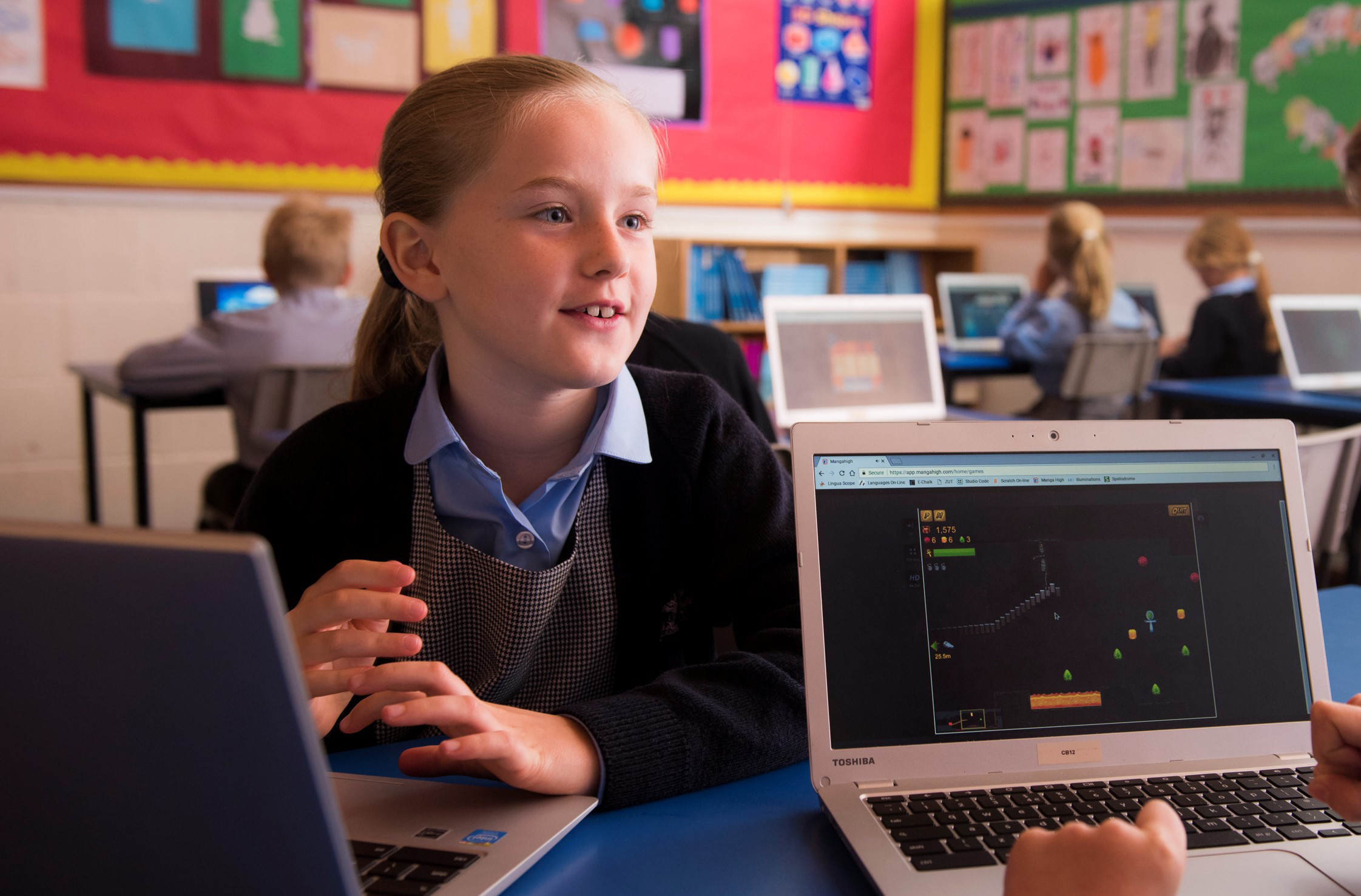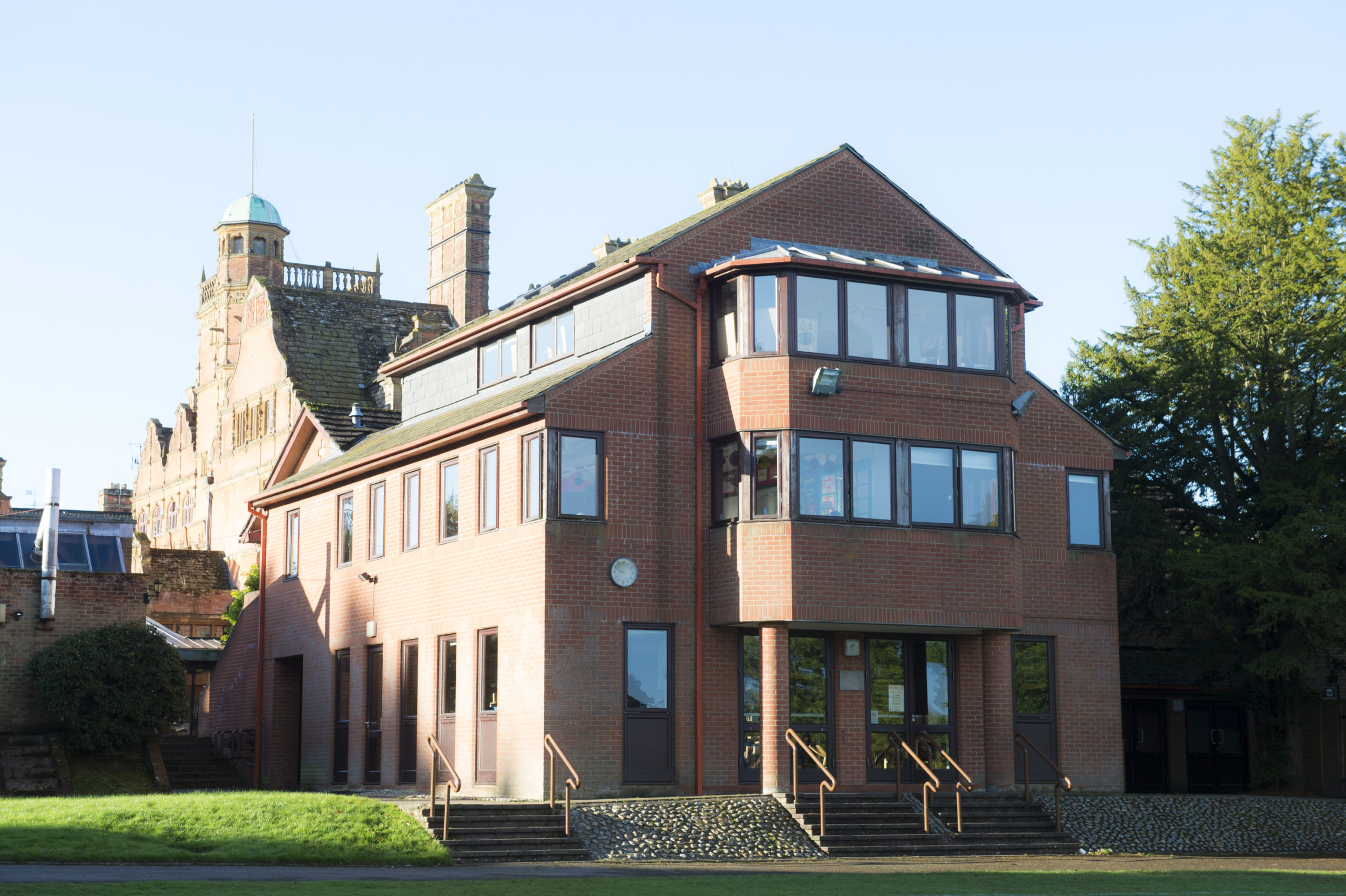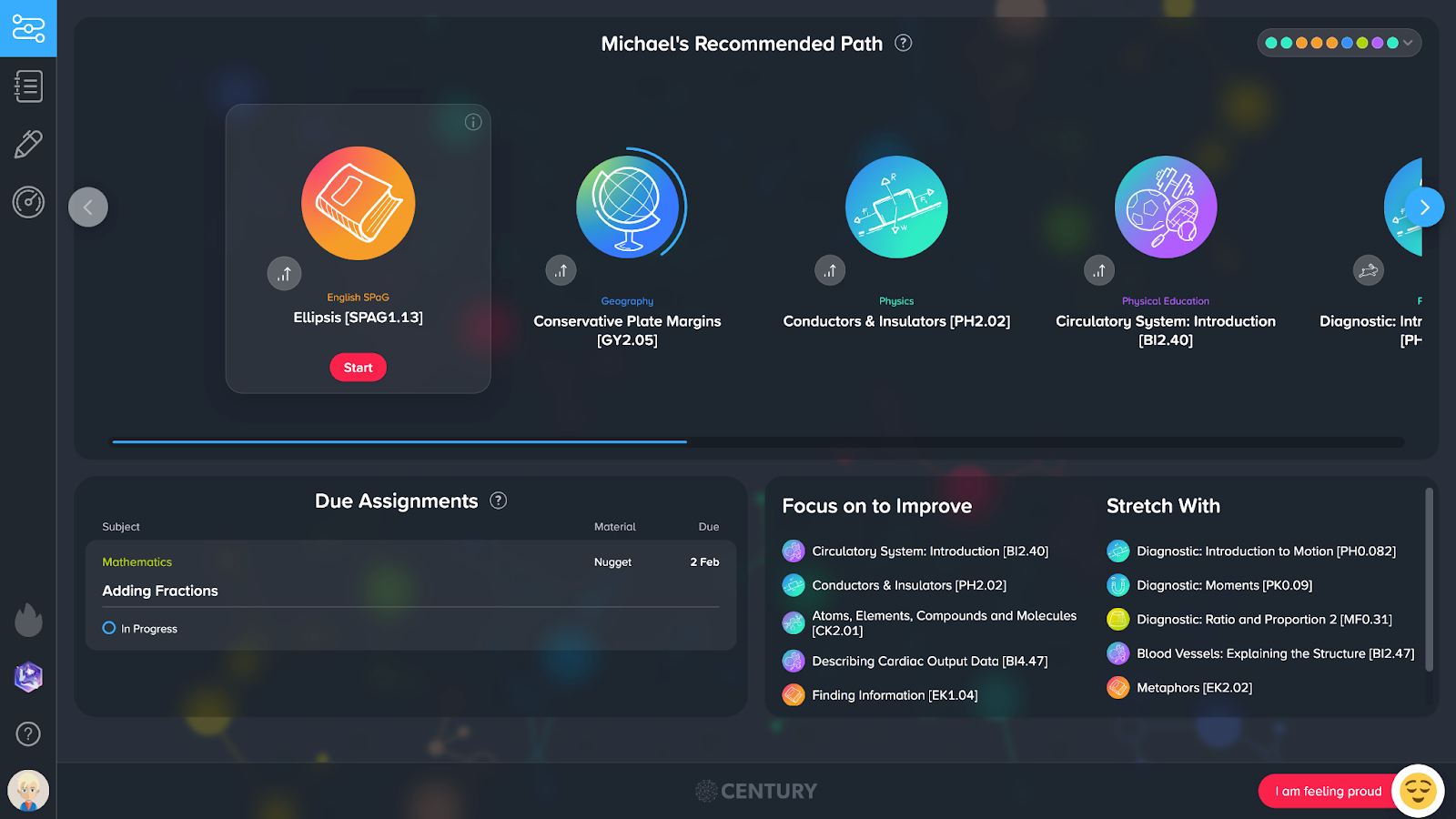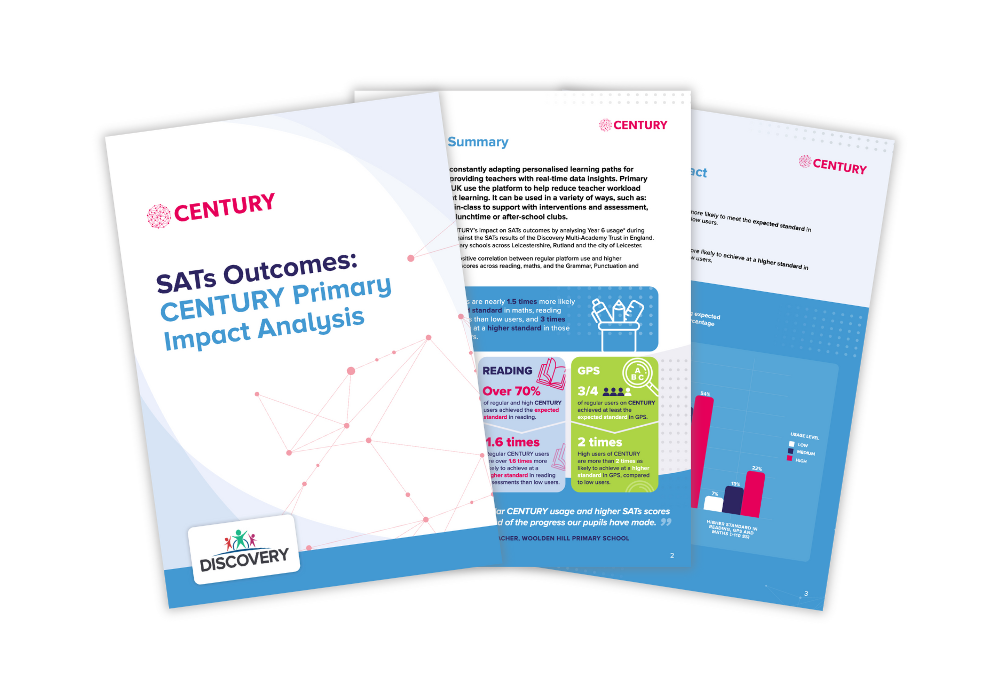Estimated reading time: 10 minutes
Cottesmore School is a boarding prep school set in leafy grounds on the Surrey and Sussex border. Named Prep School of the Year by Tatler and Boarding School of the Year by Tes, Cottesmore has been preparing boys and girls for major public schools, such as Eton, Winchester, Wellington and Marlborough, since 1894.
We spoke to Headmaster Tom Rogerson and Director Of Studies Mike Waller to learn more about their school’s culture of teaching and learning and how technology helps them to thrive.
Tell us about Cottesmore school and your approach to learning.
Tom Rogerson: Our ethos is to be kind, to work hard, and to have fun, and if you're not doing any of those three things at any one time, then you're not doing the right thing at Cottesmore. The 'have fun' bit is hugely important, but it has to be twinned with the work hard, and it has to be twinned with the be kind. We have a very broad curriculum – the maths, English and science is joined by all sorts of other subjects. We do chess, art, design, we have 3D printers, we have a Design Technology Lab, we have an art room, we have two science labs, and much more.
As Cottesmore is a boarding prep school in the countryside, we spend a lot of time outside the building. But also, when we're inside the building, we spend a lot of time doing things that are very practical, very demonstrative. We try to make the education that we give to the children as hands-on as we possibly can.
Obviously, the need for us to prepare the children very thoroughly for their next schools is always there. One of our main aims is to get the children into the correct school for them next and that requires a lot of preparation. As well as the English and the maths, we cover verbal reasoning, non-verbal reasoning, spatial reasoning and quantitative reasoning.
While it’s solid, academic education, the breadth has to be there too. We believe that people will be more empathetic, more rounded and better thinkers if they've done some of this and some of that, as well as the core subjects to a very high level.
How does technology fit into that vision of producing a well-rounded child?
Tom: Firstly, my vision for technology is for it to serve us. Secondly, it has to increase face-to-face time for the humans in the building. It should increase the time that we spend together and CENTURY helps us to do that. It is increasingly helping our teachers to be even more pupil-facing by automating their marking and planning and giving our teachers more time to actually focus on teaching and being with the pupils.
Mike Waller: From my perspective, I use technology to make more face-to-face connections possible. In the last year or so, the world has been dropped into this realm where so much of our lives involves sitting on the computer for hours at a time, without moving – that's not healthy. What we need is technology to help us to facilitate and to allow us to have more time to be away from our desks – so it's trying to find that balance.
CENTURY is brilliant and we use it the right amount to help pupils to learn but also to allow our teachers to be freed up to help those pupils even more. When we're in the classroom, we use it to free ourselves up, because of that instantaneous marking, because of those AI recommended pathways, which extend and are adaptive – these give us more time to be face-to-face with the pupils. That is what we want – to be able to invest more time in them individually.
How does CENTURY save your teachers time?
Mike: The automated marketing is a huge boost to our teachers. CENTURY gives you insights into pupils’ levels of understanding that would not otherwise be possible. Ahead of time you can assign pupils nuggets on CENTURY, which allows you to see instantly who has got it, who has understood it, who is able to apply that knowledge and who is really struggling straight away. Within a very short amount of time you can get instant feedback, which is more accurate than asking pupils how well they understand a topic in class.
Methods like thumbs-up thumbs-down have their place – but that is just their perception of how they've got on in class. Often if a child has found a lesson difficult, they'll tell you that they’re feeling on the fence, whereas actually if you look at the data, often they're doing very well and they're just being stretched. CENTURY allows you to see what's actually happening in terms of understanding, which saves you time because it's marked and analysed for you, with instant personalised feedback.
What impact have you noticed from using CENTURY?
Mike: We've been using CENTURY Tech for a while now. From my discussions with friends in other schools, when our pupils came back from the first lockdown, our pupils were far less negatively impacted than those in other schools.
I use CENTURY heavily in my teaching and I have found it to be a phenomenal resource. The impact is brilliant and it is driving the children on. There's no finishing activities, there's no running out of resources, there's no being caught on the wrong foot because pupil x has actually nailed that topic and is smashing the examples. There's nothing like that because you have what feels like endless resources in front of the child. Using a resource like CENTURY to bolster your activities and resources is a very, very good thing. I'm glad that we have it, I think it's helped us out a lot through this last year and will continue to be an important part of our teaching.
Do you think AI will play an even greater role in education in the years to come?
Tom: I believe that CENTURY Tech leading the way with AI in the education world is hugely preferable. That may be a bit controversial, but it's hugely preferable to a multi-trillion pound tech company leading the way. CENTURY Tech is an educational platform. That's where it started, that's its root and I'm very interested in the way things start. Google started because it wanted to help people search for things on the internet, that's not education. It can allow for education, now, Google, but that's not why it was created. That's not why it existed, it existed to help people to search for things and to make money.
I'm very happy that a company like CENTURY Tech is leading the way in AI, because I think it'll mean a lot more to the industry, it'll mean a lot more to students and to teachers, for it to be created from that base.
I think if people haven't put humans at the centre of their technology, they should abandon it and go right back to the beginning and put the humans at the centre. It should place feelings, fun, happiness, sadness, joy and humanity right at the heart, right at the beginning of the code, and then work back again from there. Unfortunately, a lot of code isn't written like that, it isn't written with emotions or human interaction in mind. But I'm hoping that the future of technology is going to be people going back and really thinking "how can we make this more human?"
Following this year of disruption, do you think there'll be a pushback against technology? Will we see schools reverting to more traditional means or is technology here to stay?
Tom: This past year has pushed some schools very quickly down a digital track, including Cottesmore. What we need to do is make sure the correct balance is there and there's not too much screen time and they are outside with sticks, building camps, and the rest. Aside from AI, I think the future lies in augmented reality. Virtual reality – sorry to say, virtual reality enthusiasts – is a bit rubbish, because all it is is like watching a screen without the sides.
Augmented reality, though – the real awesome holograms, realistic holograms, augmented reality – that's, I think, where it's going to get super, super exciting, because you can be outside, you can have the sun on your face, you can be doing stuff, you can be in the Battle of Hastings on the cricket pitch. Mr. Walker might not like that as our Head of Sport, but you can be there, you can do these exciting things and be a physical being as well. At the moment, for most or all the technology, we have to sit in a chair, we have to look at a screen. I think the next great revolution is going to be mobile – properly mobile educational technology – with augmented reality. That's where I want it to go.
But I think there's no turning back with technology. In state schools, hundreds of thousands of children have now been given laptops that they didn't have before, they're going to be on those – I think there's only one way this is going. CENTURY Tech is very, very much here to stay. But the sooner CENTURY Tech can move into augmented reality, and dinosaur parks in your sort of back garden, then the better!
Learn more about how CENTURY can supercharge your students’ learning.
